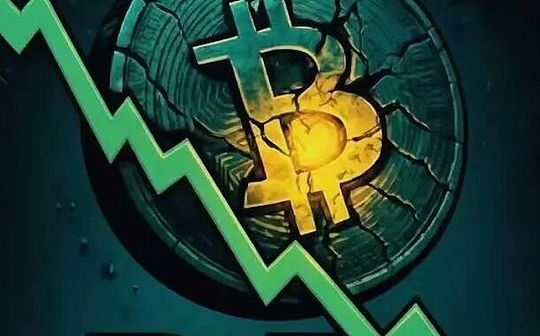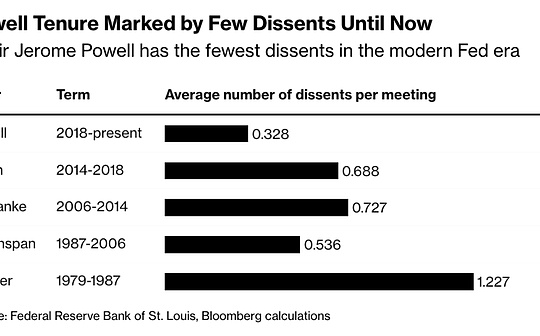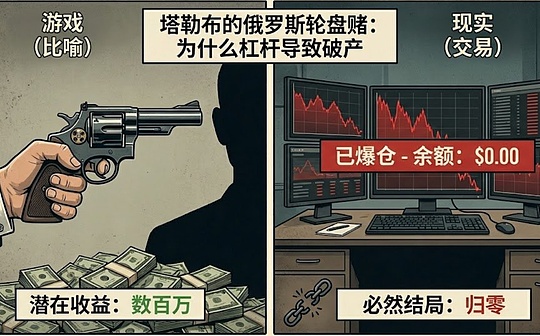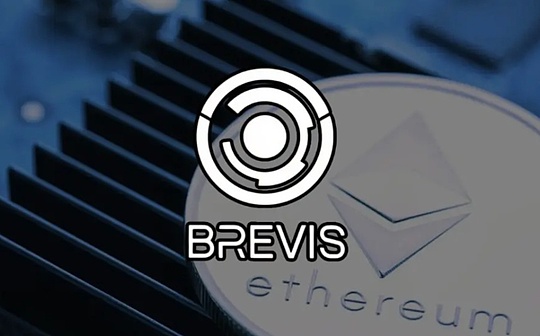
Author: Zhang Feng
In the gray area of international law and finance, a battle for assets that shocked the world came to an end quietly, with a thunderous ending.The assets worth up to 15 billion yuan in the name of Chen Zhi, the founder of Prince Group, were officially confiscated and handed over to the U.S. Department of Justice for disposal based on the judgment of the U.S. court without any criminal conviction and without even setting foot on U.S. soil.
This incident is by no means a simple transnational law enforcement cooperation, but a complex picture full of legal games, technical investigation, long-arm jurisdiction and geopolitical overtones.Is it a classic example of fighting transnational crime, or a bad precedent for the unlimited expansion of U.S. judicial power?To answer this question, we might as well analyze every link behind it in depth.
1. “Money laundering fraud” and “long-arm jurisdiction”
The U.S. Department of Justice’s charges against Chen Zhi and his Prince Group focus on “money laundering” and “fraud.”According to public court documents, the U.S. accused Chen Zhi of laundering funds from a series of illegal activities, including telecommunications network fraud, online gambling proceeds, etc., through a complex network of offshore shell companies, and finally injected them into the U.S. real estate market and other financial systems to legalize them.
However, the key point in this case is that most of the alleged “predicate crimes” themselves did not occur in the United States.For example, telecommunications fraud targeting Chinese citizens mainly takes place in China.So why does the U.S. Department of Justice have jurisdiction?Here the highly controversial principle of “long-arm jurisdiction” in the American legal system is introduced.
The US’s logical chain is as follows.One isMoney flows through the United States,The illegal funds laundered by Chen Zhi’s team were circulated through the U.S. banking system, or eventually invested in U.S. assets (such as real estate, companies).As long as a piece of stolen money enters the U.S. financial system, the U.S. judicial system thinks it has jurisdiction.The second isharming U.S. interests,The United States further alleged that these criminal acts “damaged the integrity of the U.S. financial system and national security.”Defining the use of the U.S. financial system to launder money as an infringement of U.S. national interests is a common reason for the U.S. to expand its extraterritorial jurisdiction.
Therefore,The surface reason for the accusation is “money laundering”, but the underlying reason is “long-arm jurisdiction” based on the “minimum contact” principle.This laid the legal basis for all subsequent investigations, freezing and confiscation actions, and became one of the focal points of the controversy in this case: Is the United States using its financial hegemony as the backing to shape itself into a global financial police?
2. Financial intelligence and data monitoring
To uncover a complex criminal network that spans multiple countries and meet the court standard of “conclusive evidence,” the U.S. Department of Justice used its powerful, multi-dimensional investigative methods.
financial intelligence analysisThis is the breakthrough in this case.The U.S. Financial Crimes Enforcement Network (FinCEN) cooperates with major financial institutions to establish a suspicious transaction reporting (STR) system.By tracking unusual fund flows, investigators identified large amounts of funds flowing from offshore paradises (such as the Cayman Islands and the British Virgin Islands) to specific accounts and real estate projects in the United States.By analyzing the “path” of these funds, they gradually outlined a network map of shell companies controlled by Chen Zhi.
Cross-border data retrieval,Under the authority of the “Cloud Act”, U.S. law enforcement agencies can directly request technology companies headquartered in the United States (such as Google, Microsoft, Apple, etc.) to provide their user data stored on overseas servers.It is likely that investigators obtained the emails, cloud storage files and communication records of Chen Zhi and his associates through this method. This electronic evidence became the key to constructing their criminal intent and conspiracy.
Secret surveillance and undercover operations,Court documents show investigators used informants or undercover agents to contact members of Chen’s team and record conversations about the nature and source of the funds.This kind of “fishing law enforcement” or secret evidence collection method is often seen in cases of combating complex financial crimes in the United States.
International cooperation and “tainted witnesses”,The success of this case is inseparable from the cooperation of countries and regions that have judicial cooperation agreements with the United States.It is not ruled out that “tainted witnesses” within Chen Zhi’s criminal group reached a plea bargain with US prosecutors and provided core evidence such as the group’s internal operations, keys, and ledgers, in exchange for a lighter punishment.
This three-dimensional investigation model of “technology + law + cooperation” allows Chen Zhi’s team to act secretly, but its criminal network is almost invisible to national-level investigation machines.
3. Civil confiscation is extremely controversial
The most shocking thing about this case is that the freezing and confiscation of assets are not predicated on a criminal conviction.Here, the U.S. Department of Justice used an “artifact” in its legal arsenal——civil forfeiture system.
Unlike criminal forfeiture, the defendant in civil forfeiture is not a “person” but the “thing” itself, that is, the 15 billion asset.The U.S. government, as plaintiff, alleges that the assets themselves were instruments of crime or proceeds of crime.This program has several notable features:
Lower burden of proof: It is not necessary to meet the “beyond a reasonable doubt” standard in criminal cases, only a “preponderance of the evidence” is required, that is, it is more likely that the assets came from illegal activities than legal activities.
The defendant (owner) needs to prove his innocence: Once the assets are frozen, Chen Zhi, as the claimed legal owner, needs to take the initiative to file a lawsuit to prove the legal source of the assets.If he is unable to provide clear and complete proof of legal origin, or he is unwilling or unable (for example, because he is at risk of extradition in a third country) to travel to the United States to respond to the lawsuit, the court can issue a default judgment and declare the assets to be confiscated.
Move quickly and covertly: To prevent the transfer of assets, the Department of Justice can secretly apply to a judge for a freezing order in advance, instantly freezing all target assets in the United States and even within the jurisdiction of cooperating countries without the defendant’s knowledge.
The asset freezing and confiscation in the Chen Zhi case is the perfect embodiment of this procedure.After obtaining preliminary evidence, the United States quickly initiated a civil forfeiture lawsuit. However, Chen Zhi failed to mount an effective defense due to various reasons, which ultimately resulted in the huge amount of assets being surrendered without a fight.
4. The legal network is tight and the system is woven
Of course, the U.S. Department of Justice’s move is not unreasonable. On the contrary, it relies on a mature and continuously strengthening domestic legal system.
Racketeer and Corrupt Organizations Act (RICO)It was originally intended to combat organized crime such as the Mafia, but its scope of application is extremely wide.It is applicable as long as it is proven that there is a criminal organization with an “enterprise” nature and that it has carried out at least two statutory “fraud patterns” (such as mail fraud, telecommunications fraud).The RICO Act carries extremely severe penalties, including huge fines and asset forfeiture, and is a powerful weapon for prosecutors to force defendants to plead guilty.
Bank Secrecy Act and Anti-Money Laundering RegulationsFinancial institutions are required to perform customer due diligence and suspicious transaction reporting obligations, providing legal protection for financial intelligence collection.
Patriot ActFurther expands the government’s powers in tracking and combating terrorist financing and money laundering activities, including strengthening cross-border financial supervision.
Civil Forfeiture Laws: As mentioned before, this is a straightforward legal tool.
Through the combined application of these laws, the U.S. Department of Justice has built a formally complete legal basis for its actions, although its substantive extraterritorial applicability has been criticized by the international community.
5. Technical analysis, integrated application
In this case, the investigative agency almost certainly used the most cutting-edge technical investigation methods, especially for possible cryptocurrency money laundering.
As criminal methods escalate, Chen Zhi’s team is likely to try to use cryptocurrencies such as Bitcoin and Tether to transfer assets, believing that they are anonymous.However, U.S. law enforcement agencies, such as the Federal Bureau of Investigation (FBI) and Homeland Security Investigations (HSI), are already equipped with powerful blockchain analysis tools (such as Chainalysis, CipherTrace).
These tools canAddress clustering, i.e.By analyzing public blockchain ledgers, multiple cryptocurrency addresses belonging to the same entity are aggregated;Trading map drawing, i.e.Clearly map out the complete path of funds from illegal sources (such as darknet markets, fraud platforms) to exchanges, to currency mixing services, and finally to withdrawals or conversions to other assets;identity, i.e.By partnering with compliant cryptocurrency exchanges, anonymous addresses on the blockchain are mapped to personally identifiable information in the real world.
Therefore, attempts to launder money through cryptocurrency may leave an untamperable and extremely clear electronic trace in the face of modern investigation technology.This may be the last technical straw that overwhelms Chen Zhi’s team.
6. Industry influence and repercussions
The outcome of the Chen Zhi case undoubtedly sent a shock bomb around the world, with far-reaching impact and polarizing reviews.
Some people think this is a “classic case”.First, it is a powerful deterrent to transnational crime.This case sends a clear message to money launderers, fraudsters and corrupt officials around the world: No matter where your criminal activity occurs, as long as your funds are connected to the U.S. financial system, you may face the risk of being “uprooted.”This significantly increases the cost and risk of sexual crime globally.The second isRaising standards for law enforcement cooperation,It demonstrates how to effectively combat highly secretive transnational financial crimes through high-tech means and multilateral legal frameworks, and provides a model for other countries to learn from.Third, whether it will becomeA “shortcut” to asset recovery?For the countries that were victims of predicate crimes (for example, the victims of telecom fraud in this case were mainly in China), although the process was full of controversy, in the end, part of the stolen wealth was eventually intercepted, which to some extent achieved “alternative justice.”
But on the other hand, this may also set a “bad precedent.”One is the abuse of “long-arm jurisdiction”.The case extends the effect of U.S. domestic laws to its borders indefinitely, essentially judicializing its financial hegemony.Any country whose citizens or companies’ financial transactions have even the slightest connection with the United States may become a target of U.S. justice.This seriously violates the sovereignty and judicial independence of other countries.
Second, the “predatory” nature of the civil confiscation system: The system has been criticized for its “presumption of guilt” and procedural asymmetries.It gives the government excessive power to deprive citizens of their property without criminal trial, and can easily be abused as a tool for government revenue generation.Chen Zhi’s case has undoubtedly strengthened the international community’s concerns about this.
Third, the risks of geopolitical tools: In the context of intensified strategic competition between China and the United States, it is difficult to completely escape political interpretation of such cases.People have reason to doubt whether the United States will use the same legal tools in the future to achieve non-economic purposes against legitimate companies and individuals in countries it considers strategic rivals.
Fourth, the turbulence of the global financial order: It increases the uncertainty of international business activities.Enterprises and wealthy people have to re-evaluate their cross-border asset allocation and structural design, lest they become the next “Chen Zhi” due to inadvertent “connections”.
The case of Prince Group Chen Zhi’s 15 billion assets transferred to the U.S. Department of Justice is a complex and multifaceted matter.From the perspective of fighting crime, it is undoubtedly a law enforcement operation with superb skills and brilliant results. It is a classic that threatened to dismantle the wealth empire of a suspect suspected of major financial crimes and his gang.
However, from the perspective of international law and national sovereignty, it sets a disturbing precedent.It shows how when a country possesses overwhelming financial, technological and legal advantages, it can transcend traditional territorial boundaries and enforce its own laws on a global scale.If this power is not restrained, it may transform from a tool to maintain order into a hegemony that creates chaos.
Ultimately, this case leaves the world with an unanswered question: In an interdependent and competitive world, what kind of global governance order do we need?YesShould we acquiesce to a “world policeman” served by the most powerful countries, or should we commit to building an international judicial cooperation system based on equal sovereignty and true multilateralism?The answer in Chen Zhi’s case is obviously the former.And this is the fundamental reason why it is deeply disturbing and will surely trigger long-lasting repercussions.







